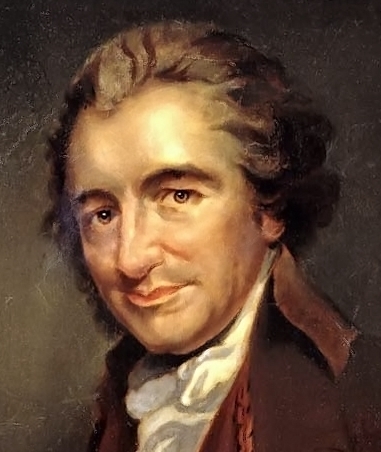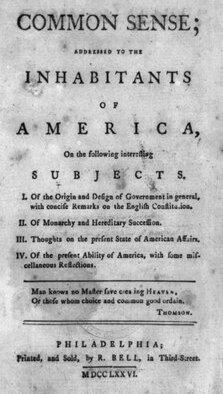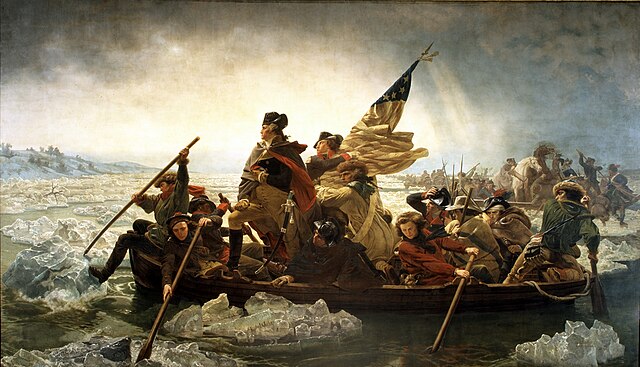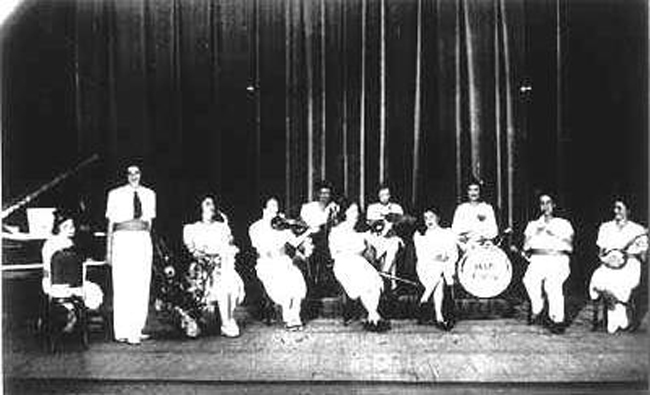by Jack Kelly
To celebrate Labor Day, author Jack Kelly shares with The History Reader why Thomas Paine, who famously penned the lines, “These are the times that try men’s souls…,” is quite possibly the working-class American founder of our time.

With the nation’s 250th birthday approaching, Labor Day might be a good time to remember a working-class founder. Thomas Paine was not a landowner, not a merchant, or a lawyer. He did not participate in slavery but instead spoke out against it. He was a recent immigrant to America, who argued for human rights, the rule of law, and a government of the people. He is the founder that most of us would want to have a beer with.
Paine’s father, Joseph, worked in England as a corset maker. The craft involved hard labor and low pay. He and his wife scrimped to give their son an elementary school education. But at the age of twelve, Thomas became an apprentice to his father and spent long hours at the tedious work.
When Paine finished his apprenticeship, he pursued the corset-making trade in London and in towns around England. At various times during his life there, he taught school, ran a small tobacco shop, and served as an excise tax collector.
Largely self-educated, Paine loved to participate in tavern debates. Over glasses of ale, artisans and tradesmen talked about the issues of the day, including the status of the British colonies. A prize was given for the sharpest argument and Paine often won.
Having worked all his life, Paine understood the concerns of working men and women. He felt the oppressive sting of England’s entrenched aristocracy. He watched lords flaunt their wealth, while hungry children were hanged for stealing a loaf of bread.
In December 1774, at the age of thirty-seven, Paine journeyed across the Atlantic, seeking a new start in the New World. He settled in Philadelphia and found a job as a magazine editor. Six months later, the Revolutionary War broke out at Lexington, Massachusetts. “When the country, into which I had just set my foot, was set on fire about my ears,” Paine wrote, “it was time to stir. It was time for every man to stir.”

Thomas Paine did stir. He embraced the patriot cause with passion and wrote an essay about the ongoing conflict. His friend Benjamin Rush, a member of Congress, warned him not to mention the word “independence” in the pamphlet. Only fools and fanatics, it was said, favored a complete break with Britain. Most Americans felt that the goal of the war was to reconcile with the mother country on better terms. Paine ignored Rush’s advice. In January 1776, he published the pamphlet he called Common Sense. He boldly argued for independence from Britain and for the establishment of a democratic republic.
Pamphlets were the social media posts of the time, and Common Sense went viral—big time. It sold more than a hundred thousand copies. It was reprinted in newspapers and talked about everywhere, from town squares to the halls of the Continental Congress.
Rather than plead for lower taxes and greater representation in Parliament, Paine wanted Americans to demolish the monarchy. They did not need a king, he said; they could rule themselves. King George III was “a worm, who in the midst of his splendor is crumbling into dust.”
In January 1776, Paine wrote, “Nothing can settle our affairs so expeditiously as an open and determined declaration of independence.” Six months later, on July 4, the Continental Congress declared that the colonies “are, and of Right ought to be Free and Independent States.”
For Thomas Paine, it was just the beginning. He handed over all the profits from Common Sense to buy supplies for the Continental Army. He volunteered with the Pennsylvania militia. He witnessed the battles around New York City during the summer of 1776. He marched with George Washington’s army on the harrowing retreat across New Jersey to Pennsylvania that autumn. He then sat down to write his most quoted essay, which began, “These are the times that try men’s souls . . .”

His words inspired soldiers and civilians alike. Washington came back across the Delaware River on Christmas night, 1776. The bold counterattack gave the Revolution new life—and the world changed forever.
As we look to the important figures who helped found our nation 250 years ago, Thomas Paine stands out. He knew work. He argued for equality under the law. He did not bow down to wealth but labeled aristocrats as absurd. He did not just advocate for rebellion, he joined the fight. He did not couch his arguments in fancy phrases but wrote for common people in a style they could understand. His words struck lightning. He became the voice of the Revolution.
Perhaps most importantly, Paine saw that the Revolution was about more than breaking away from Britain. “We have it in our power to begin the world over again,” he wrote. “The cause of America is in a great measure the cause of all mankind.”
Paine remains an inspiration to all those determined to preserve democracy. This eloquent working man, who proclaimed, “Ye that dare oppose, not only the tyranny, but the tyrant, stand forth!” may very well be the founder for our time.
Originally posted on Jack Kelly’s Talking to America substack.

JACK KELLY is an award-winning author and historian. His books include Band of Giants, which received the DAR History Medal, and God Save Benedict Arnold, a Finalist for the New England Book Awards. He has published five novels, and is a New York Foundation for the Arts fellow in Nonfiction Literature. Kelly has appeared on The History Channel, National Public Radio, and C-Span. He lives in New York’s Hudson Valley.
The post A Time for Every Man to Stir appeared first on The History Reader.




0 Comments